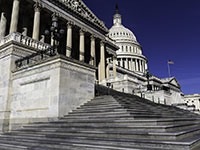On September 10, 2012, the CFTC issued rules mandating new record-keeping and registration requirements for swap dealers and major swap participants in the $700 trillion derivative global market. The rules were published in the Federal Register on September 11, 2012 and will take effect on November 13, 2012. The issuance finalizes rules adopted in a 5 to 0 CFTC vote on August 27, 2012. The rules were issued under Section 731 of the Dodd Frank Act, which amended the Commodity Exchange Act to require the adoption of standards relating to the confirmation, processing, netting, documentation, and valuation of swaps. Through these regulations, CFTC aims to effectively regulate swap dealers and major swap participants, and impose rigorous clearing and trade execution requirements on a previously unchecked derivatives market.
A swap is a derivative product in which counterparties exchange the cash flows of their financial instrument for the cash flows of the other party’s instrument. Swaps can include currency swaps, interest rates swaps, and, more recently, credit default swaps.
The final rules require swap dealers and major swap participants to timely and accurately confirm swap transactions by the end of the first business day following the date of execution. The rules also mandate portfolio reconciliation on a daily, weekly, and quarterly basis, and portfolio compression as a risk management tool. Furthermore, swap dealers and participants must now establish and enforce policies and procedures that are reasonably designed to ensure that each dealer and participant and its counterparties agree to all of the terms in the swap trading relationship documentation. The rules also require dealers and participants to agree with their counterparties regarding the methods, procedures, rules, and inputs for swap valuations. READ MORE →








